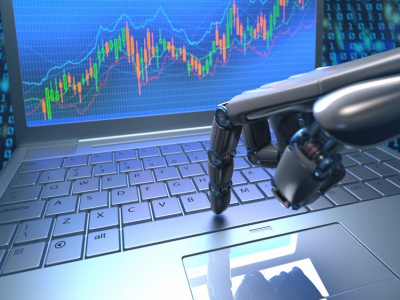With all that blockchain media hype, to follow the emerging new applications of the distributed ledger becomes a challenge. CoinFox has listed five use cases that look the most promising as of August 2016.
At first, blockchain was little more than a tool designed to solve the problem of ‘double spending’ in bitcoin. In 2014, projects began to emerge that used bitcoin blockchain for auxiliary purposes, such as Colored Coins. Just a year later, many banks and financial institutions all over the world were researching possible uses of the distributed ledger both in finance and beyond. In the first half of 2016 only, investments in blockchain projects approached $300 million. While experts argue what to expect in 2017, let us overview the blockchain uses that have a potential to change the world, at least as it looks now.
1. Social networks
In 2015, Taringa! – the largest content platform in Latin America – launched a revenue sharing program Taringa! Creadores. It allowed users to receive a reward in bitcoin for publishing popular content on their page that generated money through advertisements.
The second step, in 2016, was the creation of blockchain-based social networks. Steemit.com, launched in beta version in May 2016, uses its own blockchain and its own cryptocurrency to reward both publishers and curators (those who upvote and discuss the content). It achieved a great suсcess, attracting swarms of new users and in no time at all brought its cryptocurrency, steem, to the third place by market cap after bitcoin and ether.
Another social network, Yours, is keen to compete for the leading place among distributed media platforms. It runs on the bitcoin blockchain as its creators believe that only bitcoin can be a solid support for a distributed social network because of its developed infrastructure and expert community. According to Operations Manager Steven McKie, Yours enjoys “overwhelming interest” on behalf of investors. Its launch is scheduled to take place later this year.
2. Medicine
In April 2016, under the auspices of Hyperledger project, Accenture, a multinational consulting services company, presented a project of distributed time-stamping and blockchain tracking of drugs. According to the company’s lead software developer Primrose Mbanefo, if the project is implemented, it could help to raise quality control excluding from circulation not only illegally produced drugs, but even those made by well-established companies that do not stick to the formula well enough. It would finally provide healthcare with “a supply chain we could actually trust.”
Another medical project based on the distributed ledger was presented in May by the UAE-based telecom provider du and Estonian company Guardtime. The partners plan to put all health records in the UAE in a distributed ledger. It is supposed to reduce paperwork, increase the security of health records and give medical professionals access to up-to-date patient profiles.
A number of other medical projects are expected be announced soon. In June, the US Department of Health and Human Services started a blockchain challenge for healthcare projects. The winners are to be announced on 20 August. Individual researchers, as well as scientific teams, are invited to take part in the contest.
3. Controlling refugees
Could blockchain help with the current refugee crisis? A group of Spanish hackers known as “Ghaya” is absolutely sure of it. In April, they announced a blockchain register that would store all data on refugees required by governments and NGOs: the path of their travels, family relationships, contact details, time spent in every place, visa entitlements, possibly even biometric information and their message exchange. The database would be maintained by specialised NGOs to be used by governments and other organisations working in the field. The blockchain, according to Ghaya, is necessary to guarantee transparency and immutability of the record.
4. Peer-to-peer energy trade
One of the original purposes of bitcoin was eliminating the middleman in financial transactions. The distributed ledger can help to achieve this goal in other areas, as it has been shown by TransActive Grid, a New York-based peer-to-peer energy transaction platform powered by Ethereum. It was first put to use on 11 April 2016, when social justice activist Eric Frumin sold excess renewable energy to his fellow New Yorker Bob Sauchelli.
Australia has followed suit. In the beginning of August, Australian company Power Ledger announced it is going to start testing a blockchain system that will allow households to sell excess solar-generated electricity to each other without mediators. The experiment involving 10 families will last 8 weeks. The blockchain transparency enables the seller and the buyer to track the movement of electricity as well as the movement of funds. By eliminating the middlemen, it would also bring profit to both sides. Those who invested in solar panels get clients and regular profit, while those who did not get the relatively cheap renewable energy to their houses.
5. Turning our life into game
During the last month, masses people in many countries of the world became crazy about Pokémon Go. But there are other location-based games out there, and one of them called Takara (which simply means “treasure” in Japanese), allows users to search for bitcoins and other tokens – coupons, tickets, loyalty points, company stocks and anything else of value, a map on the smartphone showing where to look for the artefacts. To pick up the treasure, the user must travel to the exact spot and use GPS. All tokens are registered in the bitcoin blockchain and, once picked, can be used for real-life transactions.
Another project, Dubai Points, has been announced by a blockchain company Loyyal (formerly Ribbit.me). The idea is to turn a visit to Dubai (the fourth most visited city in the world) into some sort of a quest game: tourists would be encouraged to go to certain places to earn points they could later spend in various locations in Dubai. Therefore, blockchain is capable of making your everyday life similar to a computer game.
Alexey Tereshchenko
















